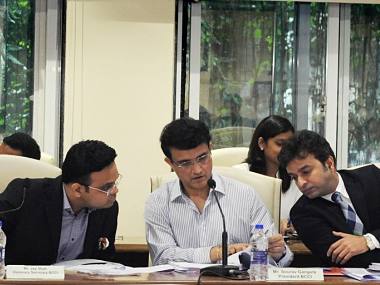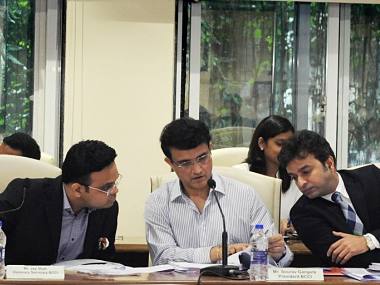Why fix something which is not broken? That is a question that only the current office-bearers of the Board of Control for Cricket in India (BCCI), whose shenanigans are already on par, if not surpassing anything done by previous office-bearers, can answer. On the eve of India’s commendable hard-fought ODI series win over Australia, BCCI astonishingly put out a message that its selectors would have to make themselves available to attend team meetings. [caption id=“attachment_7723591” align=“alignleft” width=“380”]  Sourav Ganguly (C) and Jay Shah (L) during the BCCI AGM. Source: Twitter/BCCI[/caption] Usually post-mortems and corrective steps are taken after a team’s debacle. This was seen when Australia set up the Argus Review committee comprising businessman Don Argus, former skippers Allan Border, Mark Taylor, Steve Waugh and erstwhile Cricket Australia CEO Malcolm Speed after the national team, in 2010-11, suffered one its worst home Ashes defeats (3-1) in two dozen years. But the Indian cricket team right now is in a different situation. It is on a roll. It had won a series for the first time in Australia in 2018, won Tests in West Indies, South Africa and plenty more at home, including the terrific ODI series win just Sunday night. So why is the Board trying to cut its nose? Whom does it wish to spite or even undermine? And what on earth is Sarandeep Singh or Devang Gandhi or one of their colleagues with sparse experience or accomplishments going to contribute in a team meeting where the immensely successful Virat Kohli, his deputy Rohit Sharma and experienced coach Ravi Shastri having seemingly zeroed in on a winning strategy? Surely the Board’s moves defy logic. Actually India’s experience with selectors overstepping their traditional role has not been a happy one. During the India tour of England in 2007, skipper Rahul Dravid who led the team to their first Test series win in England in two decades, was completely put off by chairman of selection committee Dilip Vengsarkar plonking himself in the dressing room and interfering with his decisions that he told the board he did not want to be a part of the process anymore. He quit captaincy, saying he was not enjoying it. The board had to ultimately come out with a policy banning selectors from entering the dressing room. This was yet another example of a successful captain and team not getting the sort of support and backing they deserved from their own board. Australia’s example, although it was driven by the rare home Ashes series failure, was no different. Their former skippers Border, Taylor and Waugh interviewed members of the losing team before submitting a scathing report of selectors’ chief Andrew Hilditch and Greg Chappell, both boasting of far greater credentials than Singh and Gandhi put together. Hilditch was sacked while Chappell’s involvement in dressing room discussions came in for heavy criticism from the players themselves. His bypassing the skipper and giving instructions to players, particularly batsmen, was not taken well at all. “He drove us mad,” a report quoted the players as complaining. Apparently he would constantly give instructions to batsmen, thereby impinging on the skipper’s authority and interfering with the batman’s ability to play to the situation. The players told the review that they were also extremely unhappy with feedback from Chappell and Hilditch. Argus appeared to accept this, and said that it would be a “huge step forward if the selectors could have an adult conversation with the players.” The report revealed Chappell’s relationship with the Australian players broke down so badly during the losing Ashes series he was eventually banned from the dressing room while the team was batting. There were claims Chappell undermined the coaching staff by becoming involved when he should have been a passive observer. This being the bitter experience from past involvement of selectors in team environment and in the dressing room, the Board must come clean on why it wants to turn the clock back at a time when Indian cricket is actually riding high. In fact the Board has specifically stated while inviting applications for the post of national selectors that one of the key requirements would be selectors’ availability to attend team meetings. Actually there are only two slots that need to be filled up, that of MSK Prasad and Gagan Khoda. The other three, Singh, Gandhi and Jatin Paranjpe will be around for another year at least. So whoever fills the slots will straight away be on the spot, engaging in team meeting and possibly sending feedback to ‘big brother’. Now that could cause problems, particularly if details of meetings are leaked. Heads have rolled in the past over this. Indian cricket officials have a history of making silly mistakes and harming the team’s interests. One would have thought that those days were long gone. But the latest BCCI move to involve selectors in team meetings has revealed that they still retain the levers to mess with team bonding. Looks like the current lot is only old wine in a new bottle.
On the eve of India’s commendable ODI series win over Australia, BCCI astonishingly put out a message that its selectors would have to make themselves available to attend team meetings.
Advertisement
End of Article


)

)
)
)
)
)
)
)
)



